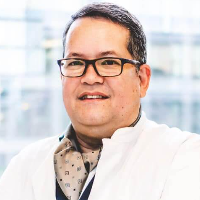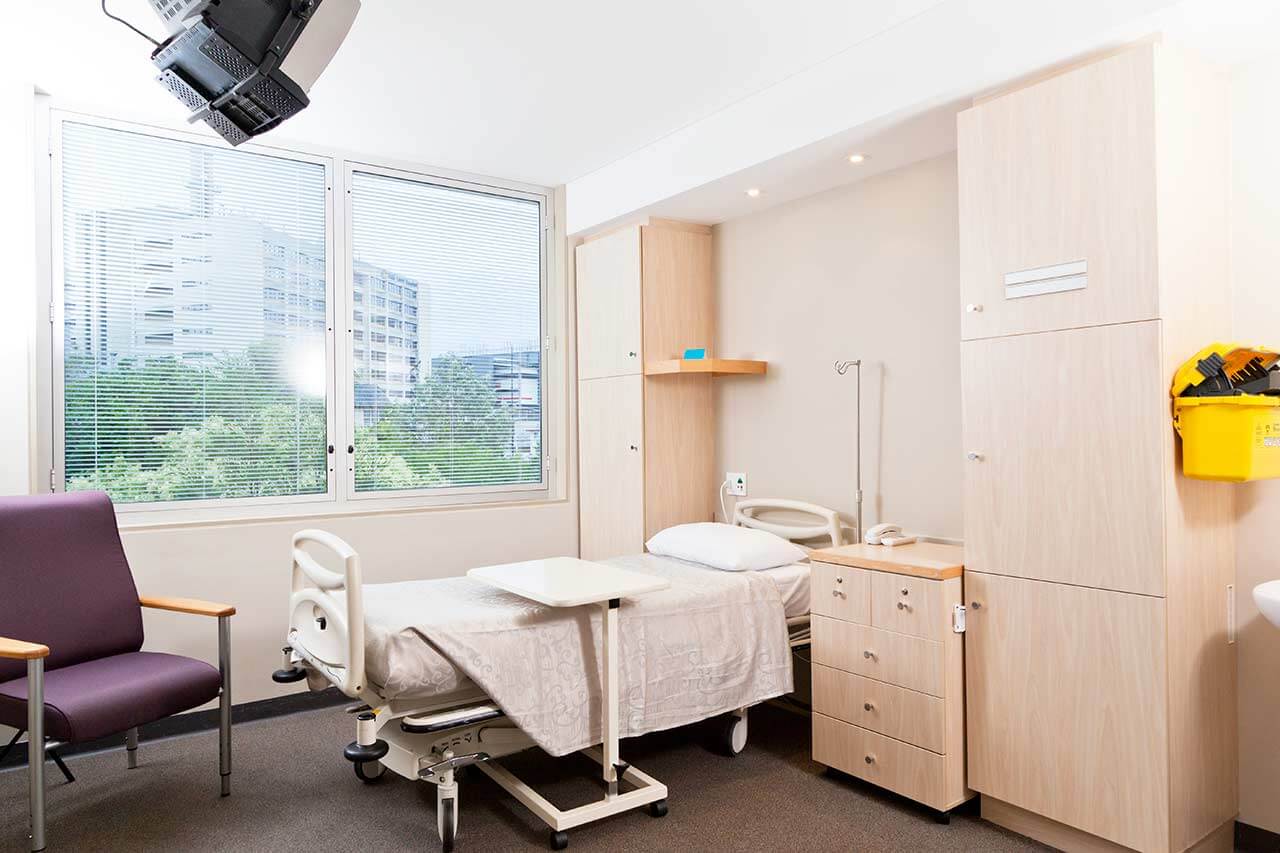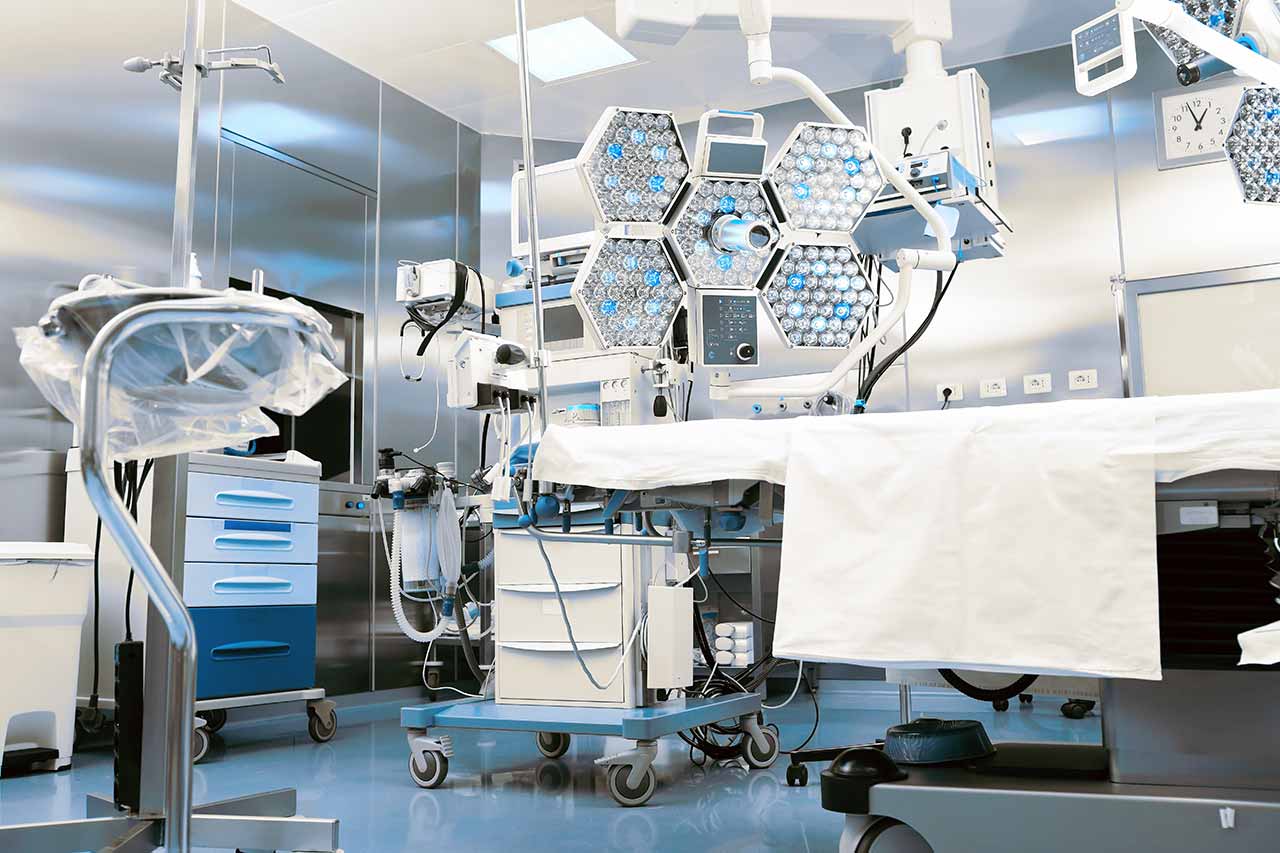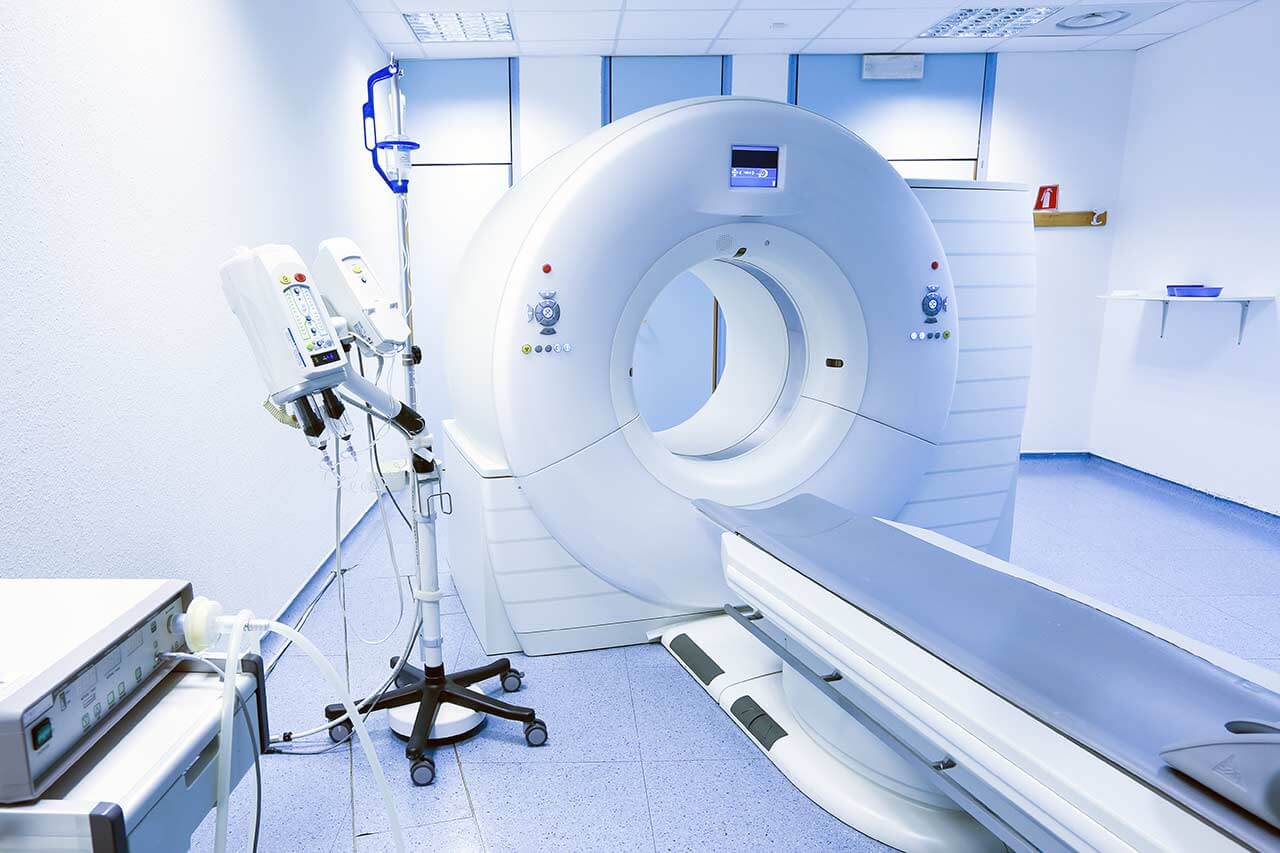
The program includes:
- Initial presentation in the clinic
- history taking
- general clinical examination
- abdominal ultrasound
- MRI scan (on indication 1200 €)
- nursing services
- consultation of related specialist
- development of individual treatment plan
- written statement
Required documents
- Medical records
- US scan (if available)
Service
You may also book:
 BookingHealth Price from:
BookingHealth Price from:
About the department
The Department of General and Abdominal Surgery, Colorectal Surgery, Hernia Surgery and Bariatric Surgery at the Beta Clinic Bonn provides highly accurate diagnostics and modern surgical treatment for patients with gastrointestinal diseases, including colon and rectal pathologies. In the field of colorectal surgery, the medical facility has excellent qualifications in the treatment of hemorrhoids, fecal incontinence, bowel disorders, and pilonidal sinus. The department's surgeons also offer the latest techniques for treating inguinal, umbilical, and incisional hernias. Surgical treatment for obesity is a separate clinical focus in the department. Patients are treated only by experienced surgeons who have a perfect command of modern, low-traumatic techniques. Almost all interventions in the department are performed using laparoscopic techniques, and it is also possible to perform single-port laparoscopic interventions (a surgical approach is provided through the navel). The department's specialists always devote enough time to accurate diagnostics for the patient in order to comprehensively assess his clinical case and prescribe the optimal treatment method. Surgeons at the medical facility cooperate closely with doctors from the Departments of Gastroenterology, Oncology, Radiology, Nuclear Medicine, and others. The Head Physician of the department is Dr. med. Stefan Mühlbauer.
The department regularly admits patients with all types of hernias, including inguinal, umbilical, incisional, and anterior abdominal wall hernias. An inguinal hernia is the most common pathology, so the key focus in the department is on performing operations specifically for this type of hernia. An inguinal hernia is a pathological protrusion of the abdominal organs into the inguinal canal. In the early stages, the hernia does not cause any pain, manifesting only a slight protrusion in the inguinal region. As the disease progresses, pain develops, and a burning sensation frequently occurs. When a patient comes to the department with a suspected inguinal hernia, the doctor studies his medical history and performs a clinical examination of the patient in the lying and standing positions. In some cases, an ultrasound scan may also be prescribed. As for the treatment, inguinal hernias can only be eliminated with surgery. Surgical options for this type of hernia include the Shouldice hernia repair, the Lichtenstein operation, totally extraperitoneal (TEP) hernia repair, and transabdominal preperitoneal (TAPP) hernia repair. TEP and TAPP interventions are minimally invasive, while the Shouldice and Lichtenstein techniques are performed using open techniques. The optimal type of surgical intervention is prescribed based on the patient's particular clinical case.
The department's specialists are deservedly proud of their successful results in fecal incontinence treatment. Fecal incontinence is impaired rectal functioning, as a result of which a person loses the ability to control the act of defecation. Pathology is not only a physiological problem. The condition also provokes serious psychological problems and complexes. There are three stages of fecal incontinence, each of which has its own characteristics. The diagnostic process begins with the collection of anamnesis, after which proctological diagnostics are performed, including examination, palpation, rectoscopy, and anal manometry. In some cases, colonoscopy, MR defecography, and endosonography of the anal canal and lower rectum may also be required. The approach to the treatment of fecal incontinence depends on the causes of the disease and the severity of the pathology. For example, if the development of fecal incontinence is caused by the presence of irritable bowel syndrome or chronic inflammatory bowel disease in a patient, therapy will be aimed at curing these diseases, which will subsequently lead to normal bowel function. If the patient has sphincter dysfunction and pelvic floor dysfunction, the department's doctors use biofeedback and sacral nerve stimulation. The intervention to implant a special neurostimulator is performed in the department under X-ray guidance using anesthesia. The duration of the operation is 45-60 minutes. The hospital stay after surgery is quite short.
The range of the department's services is supplemented by operations for morbid obesity. Obviously, the first-line treatment for overweight patients is diet therapy and physical exercise. However, in some cases, such treatment may not give the desired result, and then the optimal method for weight loss is surgery. Before the operation, the patient is provided with consultations, during which he receives information about the possible options for surgical treatment and their advantages and disadvantages. Following this, doctors conduct comprehensive diagnostics to eliminate risks to his health during the operation. The department offers the following bariatric surgeries: sleeve gastroplasty and Omega loop gastric bypass. Sleeve resection involves the removal of most of the stomach, as a result of which the remaining part can absorb only a small amount of food and the person feels full faster. In addition, during this surgery, the part of the stomach that produces the hormone ghrelin, which is responsible for the feeling of hunger, is removed. As a result, patients feel less hungry and have appetite loss, which leads to weight loss. Omega loop gastric bypass is another method of surgical treatment for morbid obesity. During the procedure, the surgeon creates a so-called gastric sac in the stomach, into which food enters. This gastric sac only holds a small amount of food, which contributes to weight loss. The placement of the Omega loop also disrupts the absorption of food, that is, the ability to absorb nutrients. After the operation, a patient must also follow an individually prescribed diet and do physical exercises on a regular basis, which in combination will provide him with the best results in the fight against excess weight.
The department's main clinical focuses include:
- General and abdominal surgery
- Surgery for benign gastrointestinal tumors
- Surgery for malignant gastrointestinal tumors
- Surgery for stomach ulcers
- Surgery for appendicitis
- Surgery for diverticular disease
- Surgery for Barrett's esophagus
- Gallbladder resection surgery
- Colorectal surgery
- Surgery for fecal incontinence
- Surgery for bowel disorders
- Surgery for hemorrhoids
- Surgery for anal fissures, abscesses, and fistulas
- Surgery for pilonidal sinus
- Hernia repair
- Surgery for inguinal hernias
- Surgery for umbilical hernias
- Surgery for anterior abdominal wall hernias
- Surgery for incisional hernias
- Bariatric surgery
- Sleeve gastroplasty
- Omega loop gastric bypass
- Other surgical services
Curriculum vitae
Dr. med. Stefan Mühlbauer studied human medicine at the University of Bonn, followed by a one-year internship at St. Mary's Hospital in Bonn. The doctor then underwent clinical practice in the field of general surgery at various hospitals as preparation for his board certification. In 2004, Dr. Mühlbauer was board certified in general surgery.
Since 2006, the specialist has worked at various hospitals as a Senior Consultant. He then began his practice as a Surgeon, specializing in general and abdominal surgery. In 2010, he took over as Senior Physician in the Department of General and Abdominal Surgery at the St. Joseph Hospital in Bonn. In addition, Dr. Stefan Mühlbauer is an Emergency Physician with special knowledge of X-ray diagnostics in surgery and emergency diagnostics.
One of the key focuses of the specialist's work is abdominal surgery. At the same time, sparing minimally invasive surgery is of particular interest to him. The doctor regularly attends advanced training courses and conferences to be able to carry out treatment in accordance with the advanced standards of medicine. He is a Member of the Professional Association of German Surgeons (BDC) and the German Society for General and Abdominal Surgery (DGAV). Dr. Mühlbauer attends the International Congress of Coloproctologists annually in Munich.
Photo of the doctor: (c) Beta Klinik Service-, Verwaltungs- und Forschungs- GmbH
About hospital
The Beta Clinic Bonn is a modern private healthcare facility with 20 specialized departments. In addition, the clinic cooperates with 30 independent doctors of various specializations, most of whom have their own private practices. The doors of the clinic first opened for patients in 2008. Since that time, the medical facility has expanded significantly and achieved outstanding success. It harmoniously combines state-of-the-art equipment, high levels of competence among doctors, and comfortable infrastructure. All these possibilities make it possible to provide patients with high-quality medical care in accordance with modern European standards. The work of the medical team at the clinic is based on the following principle: "Our task is to take care of the health of patients." The clinic provides comprehensive treatment, taking into account the individual needs and wishes of each patient.
The hospital has an excellent diagnostic base: rooms for instrumental diagnostics, imaging tests, and endoscopic procedures. The medical complex also has in-house laboratories with advanced equipment. The clinic's doctors have the opportunity to perform comprehensive diagnostics in the shortest possible time and detect the slightest pathological changes in the work and structure of the internal organs. When considering the diagnostic results in complex clinical cases, physicians from related specialties are often involved in the process so that all important aspects are taken into account when developing a treatment regimen for a patient.
The therapeutic options at the clinic are quite diverse. At the same time, doctors always strive to keep pace with innovations, carrying out treatment using the most modern and sparing techniques. The operating rooms at the clinic have advanced computer equipment, navigation devices, monitoring systems, surgical microscopes, special tools, and equipment for laparoscopic and endoscopic interventions, as well as laser systems. The clinic also has an in-house Rehabilitation Center, where patients undergo physiotherapy and therapeutic exercises.
The clinic is expanding more and more every year. Innovative developments in diagnostics and treatment are immediately introduced here. It is worth noting that the clinic is a pioneer in Germany in advanced laser treatment for epilepsy. The therapy was implemented into clinical practice in 2019 and has been successfully applied here since then.
Photo: (с) depositphotos
Accommodation in hospital
Patients rooms
The patients of the Beta Clinic Bonn live in comfortable single rooms. Each room has a separate bathroom with a shower and toilet. The rooms have a modern design and meet the standards of a high-class hotel. For the convenience of patients, the rooms are equipped with electrically adjustable beds, air conditioning, satellite and Internet TV, a telephone, and Wi-Fi.
The clinic also offers accommodations in enhanced comfort rooms. Such patient rooms have a more refined design. In addition, they are very spacious. Enhanced comfort rooms have a minibar, daily fresh fruit, and a special dinner menu. Most windows of the clinic's patient rooms offer a beautiful view of the Rhine River and beautiful green landscapes.
Meals and Menus
The patients of the clinic are offered balanced, delicious food: a buffet breakfast, a hearty three-course lunch, and a light dinner. Also, for dinner, one can taste special offers from the chef at the hospital restaurant, which, if desired, can be served to the patient room.
Further details
Standard rooms include:
Accompanying person
Your accompanying person may stay with you in your patient room or at the hotel of your choice during the inpatient program.
Hotel
You may stay at the hotel of your choice during the outpatient program. Our managers will support you for selecting the best option.
In the immediate vicinity of the clinic is the Kameha Grand, a five-star hotel. The exterior and interior of the hotel impress with their beauty. In addition, the hotel is famous for its excellent service. The hotel is located on the banks of the Rhine and offers picturesque views from its windows.





